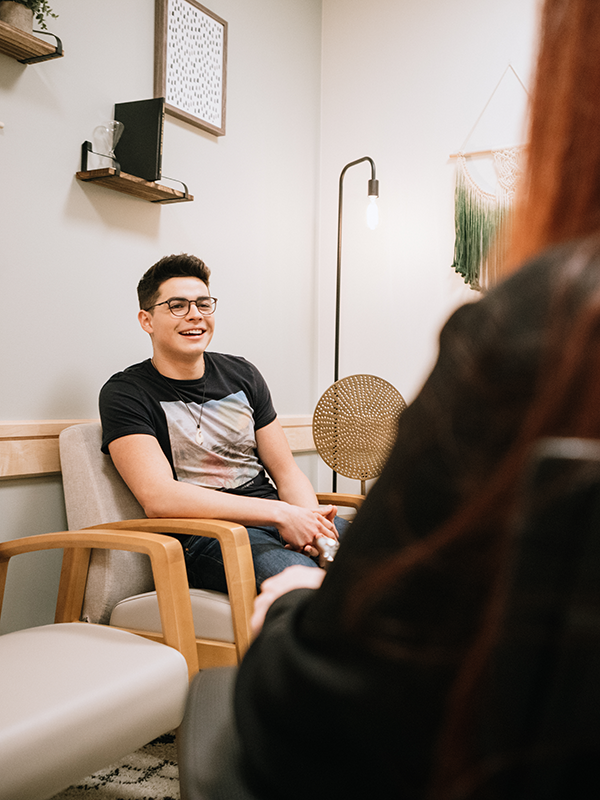Our Treatment Approach
At the heart of Cognitive Behavioral Therapy (CBT) is the notion that if you change the way you think, you can change the way you feel. This evidence-based therapeutic approach has been used for decades in the treatment of mood disorders and anxiety disorders because it effectively identifies and corrects the negative thoughts about ourselves, others and the world that trigger anxiety and depression.

What is CBT?
CBT is rooted in the idea that our thoughts and perceptions influence our behavior. A closer look at the name reveals the two main components of this therapeutic intervention:
- Cognitive therapy explores how cognitions (thoughts, beliefs) influence our emotions and contribute to our anxiety and mood.
- Behavior therapy examines how our behaviors and reactions in situations can trigger and/or perpetuate anxiety and mood symptoms.
Together, these simple concepts form a powerful recovery approach that is used extensively at Pathlight. CBT provides patients with awareness and skills to identify and modify dysfunctional thoughts, emotions and behaviors that are causing them pain or interfering with their quality of life. With guidance from Pathlight's highly experienced therapists, patients learn and practice CBT skills, making gradual, systematic and sustained progress towards recovery from mood and anxiety concerns.
CBT and anxiety
CBT is used extensively to help people overcome anxiety and it can be very effective. Exposure and Response Prevention (ERP) is a CBT skill specifically designed to manage anxiety.
Exposure — refers to directly confronting the thoughts, images, objects and situations that trigger anxiety.
Response prevention — involves learning to make the conscious choice not to engage in a compulsive coping behavior when anxiety is triggered.
Over time, purposeful, therapeutically-supported ERP results in a natural drop in anxiety — making it an ideal therapy for those in treatment for anxiety.
CBT and depression
Behavioral activation is one of the most important CBT skills used in treating depression. It helps patients understand how behavior (what we do) influences emotion (how we feel) over the course of the day. Patients explore their daily activities, identifying opportunities for increasing activities that bring pleasure and mastery and align with their goals and values, as well as problem solving around activities that depress their mood.
CBT can be a powerful therapeutic tool to help patients identify, challenge, change and overcome the distorted thoughts and destructive behaviors that increase anxiety and depression and keep them from living a meaningful life.
